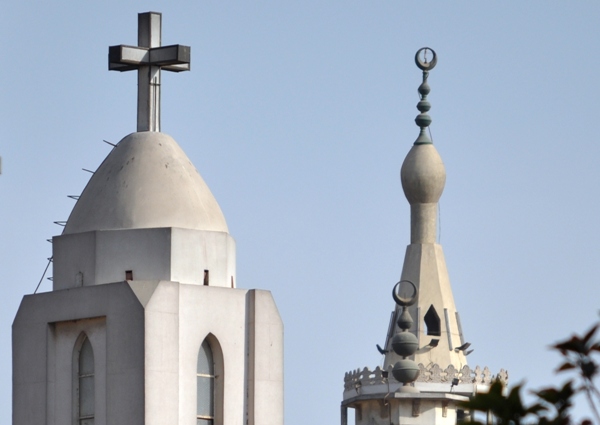
Historical Background
Once again, the United States Commission on International Religious Freedom released its annual report, in accordance with legislation passed in October 1998 known as the International Religious Freedom Act of 1998. Once again, the report includes a chapter on Egypt.
There is a lot about it that bothers me. My early studies on American interests in this area give me the right to feel annoyed and sensitive about the matters outlined below. First, there are traps contained in the report; second, the report is issued in a particular context and employed for specific motives at home and abroad. (You can see my book “Protection and Punishment: The West and the Religious Question in the Middle East. From the Ottoman Law of Doctrinal Sponsorship to the American Law of Religious Freedom,” as well as “Protestant Fundamentalism and American Foreign Policy.” They are the only two books in Arabic that, to my knowledge, cover these topics.)
However, before further discussing the reason for my annoyance, I would like to cover two points. First, the Commission on International Religious Freedom holds a special status and is composed of public figures, in accordance with the International Religious Freedom Act of 1998. The commission must issue an annual report in November of each year, in addition to the State Department’s annual report on this subject, which is supervised by an “ambassador-at-large.” Second, since mid-2011, the International Religious Freedom Reports have passed through three historical “phases.” The commission has been keen to issue its annual report, except in rare cases. The U.S. State Department, on the other hand, has stumbled in maintaining its schedule for issuing the report.
The Historical Phases of the International Religious Freedom Report
These are the historical phases of the report: The first was from 1995 to 1998, the “incitement phase.” This was the phase that preceded the passing of the International Religious Freedom Act of 1998, led by the movement of religious conservatism. During this period, two reports were issued that were specifically about religious freedom, in addition to two reports on international human rights, which included parts about religious freedom. The second phase was from 1999 to 2005, the “internationalization” phase. By this, I mean the exercise by the U.S. of global hegemony. On the one hand, this is a violation of the national sovereignty of other countries. On the other hand, it represents the internationalization of a law passed by the U.S. Congress, i.e., a law enacted in the U.S. according to the U.S. Constitution, and then applied outside of the U.S.
This has impinged on religious freedom issues in different countries outside U.S. borders, holding these countries accountable in accordance with American law. This is the phase when President George W. Bush and his successor, as well as political and religious neoconservatives, worked to build the American empire. The third phase, from 2005 to 2011, we can call the “functional phase.” This is the phase in which the decline of the Bush empire began, and the world experienced a catastrophic financial crisis, the worst in human history. And it was this that ultimately led the U.S. administration to rearrange its priorities.
At the same time, Egyptian interest in the Coptic issue was increasing from many sides, and it began to be viewed in the context of patriotism and citizenship. Accordingly, the U.S. reports have largely lost their relevance, becoming descriptive and stereotypical. Sometimes the reports by the State Department were delayed, and in some years, it was unable to publish them. However, the commission continued with its publications.
The Reason for My Annoyance
The reports during the second phase, which we had described as dangerous at the time, viewed Egypt as a country consisting of “religious groups” divided into Christian groups and Islamic groups, further divided into sects, including Shiites, Quranists and Ahmadis. At the time, we stated that this was an idea of Egypt as “fragmentary,” depicting Egypt as a sectarian state, not a state based on citizenship, regardless of its internal religious, sectarian, political and intellectual diversity.
However, this year’s report establishes a fourth phase that is more dangerous than even the second internationalization phase, despite its praise of Egypt in some places for what the report described as “positive trends” in religious freedom. This danger arises for two reasons. First, the report establishes the view that Copts are a religious “minority.” Second, it involves many areas that stretch beyond the issue of religious freedom, which represents, in my opinion, a violation of national sovereignty. Finally, the report is written using incendiary language that represents a real threat to all parties. Therefore, this warning is necessary.

Leave a Reply
You must be logged in to post a comment.